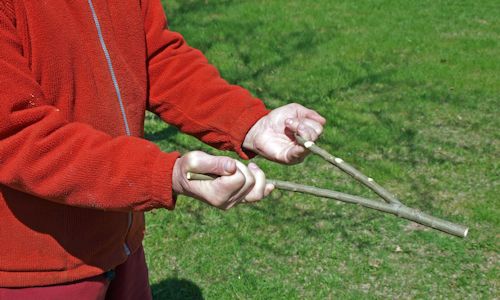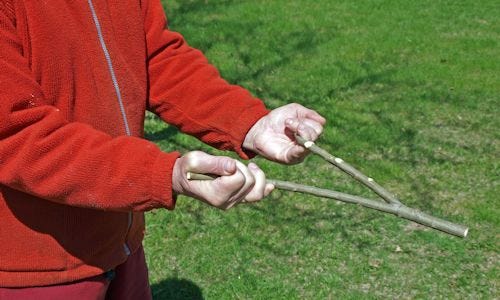
The past couple springs have definitely been a little abnormal. While farmers have been planting later than normal, cattle producers have dealt with a cold, wet calving season. One farmer I visited with recently (I won't mention who) had an unexpected birth during the interview – a treat I don't have the privilege of seeing every day, living in the city. After rushing over to remove the amniotic sac from covering the newborn calf's nose and mouth, the farmer came back and mentioned he didn't think she had been pregnant.

Of course, rectal palpation, blood tests and ultrasound are the preferred methods for detecting pregnancies today. However, while my father and I were visiting our neighbor recently, he mentioned his accuracy using another method – witching, also known as dowsing and divining. It wasn't completely unknown to me, I just had never heard of it being done to detect pregnancies in cattle.
I had heard of people using this method to detect water, dating back to the drought of the 1930s and earlier droughts in history. Witching, as many know, involves using two L-shaped wires or sticks, holding them parallel to each other in front of you and walking slowly. When they cross each other, it supposedly means you have crossed an underground waterline, which is said to have a magnetic field.
The same thing is said to work for pregnant cows and other animals, detecting water around the unborn calf. I'm not sure how accurate it would be. Many consider it a little "new age" and far-fetched. In fact, some people have made a lot of money off of expensive "dowsing" devices. Having never tried it for myself, I wouldn't know, but I have heard a lot of naysayers and those who just can't make it work for them. However, some, like my neighbor, say it works every time.
About the Author(s)
You May Also Like






